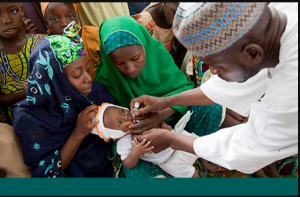

For the past few years, Africa has been sitting on the crosshair of the global discourse on climate change, not as the biggest culprit though, but as the biggest victim of man’s carelessness to its environment and the resultant catastrophes.

In a report published in October 2021 by the Intergovernmental Panel on Climate Change (IPCC), Africa was considered the most vulnerable continent to the calamities of climate change. The report was stark in its warning that more than 100 million Africans will be threatened by global warming for the next 20 years, up till 2030.
West Africa, in particular, was identified as a climate-change hotspot that will suffer likely fewer crop yields and production, with resultant impacts on food security.
Last year, Nigeria had a foretaste of extreme weather when floods overwhelmed over 16 states of the federation from August to October. From the Federal Government Data―which is conservative, to say the least―floods displaced over 1.4 million people, killed over 603 and injured more than 2,400 persons. About 82,035 houses were damaged, and 332,327 hectares of agricultural land were affected. Roads were washed off and transportation over land was impossible for months on end in the South-South region.
A few weeks later, the 2022 United Nations Climate Change Conference (or Conference of the Parties of the UNFCCC)―more commonly referred to as COP27, was held on November 6-18 in Egypt. Holding the COP27 on African soil was seen as an impetus to call attention to Africa’s plight and also extract a commitment from the developed countries to stave off the coming climate-related problems for Africa.
Indeed, many states, NGOs and African commentators had high hopes that an African country hosting the summit would improve the visibility of the priority demands of civil society and African states, particularly in the area of compensation of developing countries for the consequences of global warming.
Indeed, there were some gains, albeit, minimal, and not of the magnitude to make a huge impact on Africa’s concerns.
Meanwhile, there is little going on to stop the looming climate change apocalypse. For instance, there was no commitment to phase out fossil fuels. Oil spillage still goes on unabated in the Niger Delta. Plastic wastes in the big cities are still not properly disposed of and efficiently recycled.
It is not all gloom and doom, however. A lot of organisations and several other actors are getting involved in programmes and activities to protect the environment. This growing number of stakeholders with sustainable environment concerns is a good omen.
Now, the government needs to act as a catalyst for the sustainable environment movement by evolving mechanisms to harness and coordinate the activities of profit-oriented corporates, NGOs and private citizens working for the good of our planet.












